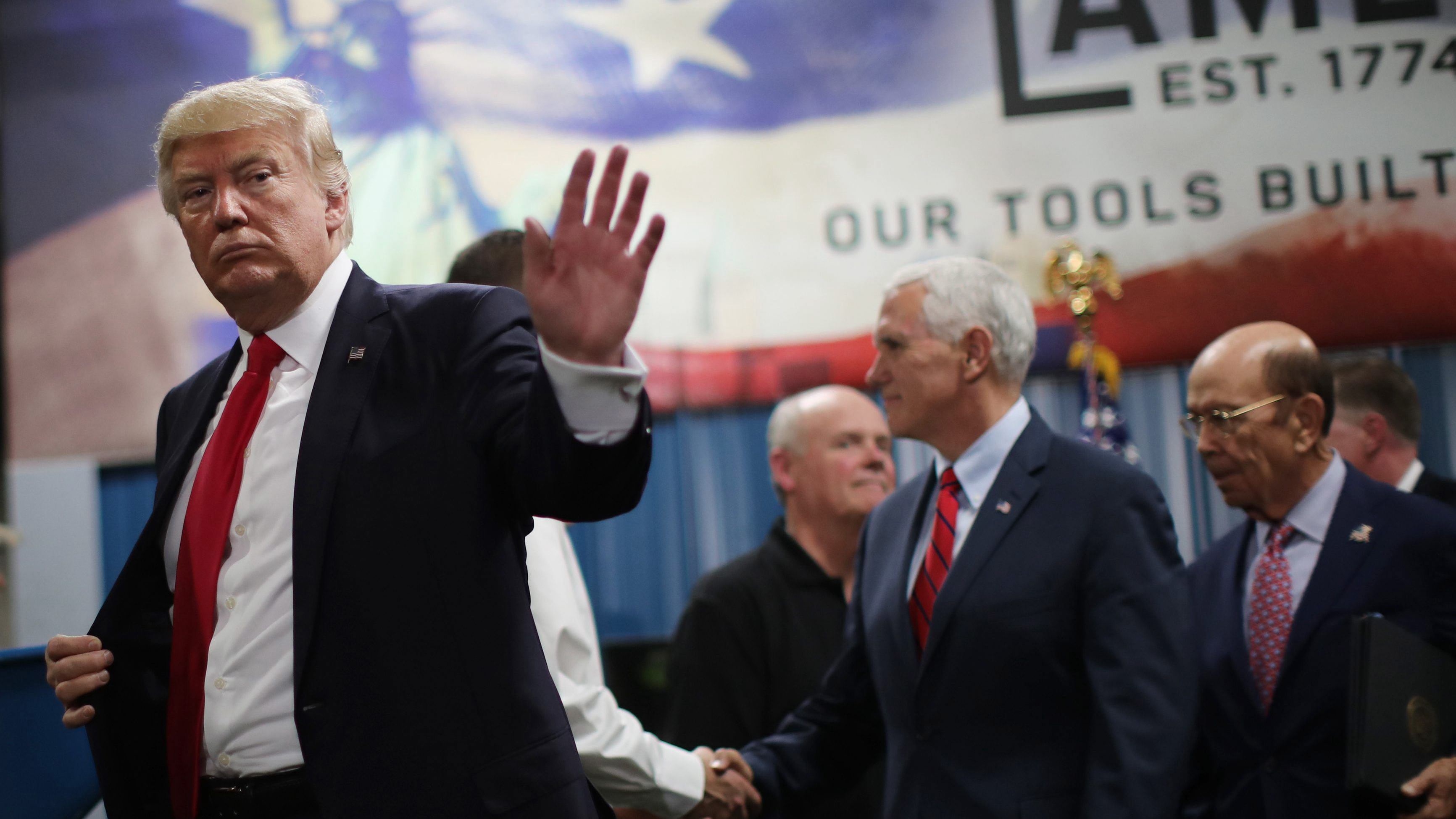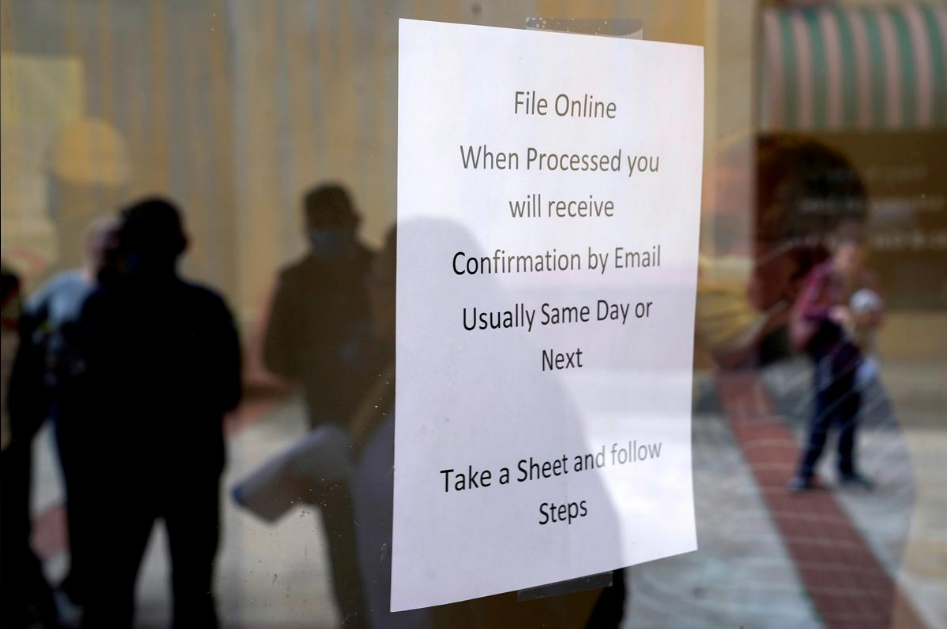
Editor's note: Joel Wendland-Liu is an associate professor of the Integrative, Religious and Intercultural Studies Department at Grand Valley State University in the U.S. The article reflects the author's opinions and not necessarily the views of CGTN.
COVID-19 opened a new battle for America's cultural identity.
Economist Jeffrey Sachs writes that as the U.S. approaches 100,000 deaths from COVID-19, "six Asia-Pacific nations – Australia, Japan, ROK, New Zealand, Taiwan, and Vietnam – have just over 1,200 coronavirus deaths in a combined population almost the same as the U.S., 328 million." Sachs might have also noted that China has four times as many people as the U.S. and has suffered 1/20 the number of deaths.
What accounts for the vast differences? On a basic level, Trump's dismantling of public health resources, compounded by his early dismissal of the pandemic as a hoax followed by disastrously slow responses.
Trump has shown himself an inept leader, driven by pettiness, moral bankruptcy, and a fondness, like many of his right-wing predecessors, for eliminating public resources that would otherwise effectively address social problems.
A study published this month by researchers at Columbia University found that Trump's delay cost more than 30,000 American lives.
Blaming Trump is necessary, but not enough to understand the culture of selfishness that he represents.
A recent article in Time Magazine seemed to embrace the culture of selfishness. "In a perfect infectious-disease-fighting model," writes author Jamie Ducharme, "everybody would stay home and socialize only with their cohabitants. But the realities of human existence are messier."
In other words, Americans know what to do; we just don't.
Instead of sharply criticizing this self-evidently dangerous contradiction, the author added that it is "natural" to put yourself in danger even though you know what actions will protect you and the people you love.
Further, Ducharme seemed to be speaking for an American context. But projected that "natural" problem as universal: "Humans are social animals, hard-wired to crave touch and interaction." As if Americans somehow exemplify what it means to be human more than other people, explaining why they will endanger one another by refusing public health guidance.
Many Americans struggle to imagine what it took for the people in the countries listed above to avoid higher infection and mortality rates. Some believe that only repressive societies could enforce social distancing fully. Disease and death are signs of freedom in that logic.
These ideas reflect a culture of selfishness, not of democratic freedom. That selfishness has led to otherwise inexplicable resistance to orders to "stay home" by armed protestors, some carrying Confederate flags and Nazi imagery. Some people have hung governors who ordered lockdowns in effigy, used the foulest language to decry and denounce public officials. People have demanded access to their barbers and salons, gyms, public swimming pools and beaches, to their churches.

People who lost their jobs are reflected in the door of an Arkansas Workforce Center as they wait in line to file for unemployment following an outbreak of the coronavirus, in Fort Smith, Arkansas, U.S., April 6, 2020. /Reuters
People who lost their jobs are reflected in the door of an Arkansas Workforce Center as they wait in line to file for unemployment following an outbreak of the coronavirus, in Fort Smith, Arkansas, U.S., April 6, 2020. /Reuters
People have held COVID-19 parties and mass demonstrations without masks insisting all those present hold hands or hug one another as a protest against tyranny. Some of these people claim the pandemic is a hoax or a conspiracy to destroy the U.S. economy. Protesters in the state of Washington held signs that read, "Give me liberty or give me COVID-19."
It's our choice where to go, who to go with, and how close to get to one another, protesters say. Being told to "stay home" is a form of oppression.
This perspective is fundamentally egotistical: I get to do what I want. I will worry about the danger to me. Don't ask me to worry about the threat my actions pose to others.
To be fair, some anger comes from real anxiety about the deepening economic crisis. The GDP has collapsed by a 40 percent annual rate in the second quarter, according to the Congressional Budget Office. Economists predict that as many one-fourth of jobs will be lost. Meanwhile, Trump and his allies have vowed to block more economic relief.
To be clear, Trump and his allies want Americans to be frightened about the economy. They say that if we don't "reopen" the economy, Americans will be unable to buy the things they want. They are using this fear of lost consumption to promote resistance to "stay home" policies. They want to force Americans back into the workplace, regardless of the danger, to produce more corporate profits.
Conservatives celebrate the self-centered attitude as the basis for freedom. It is a cultural cornerstone of capitalism, hedonistic consumerism, limitless exploitation, and greed over the common good, public health, and the satisfaction of human needs.
Many other Americans, however, believe in common well-being as the best measure of a good society. They are the medical workers who care for the sick. They are the essential food and agricultural workers laboring under dangerous conditions to maintain a supply of food. They are teachers struggling in poorly resourced conditions to educate children. The social movements that support their communities with mutual aid programs, and the political leaders who resist pressure to end public health policies.
But which America will win the struggle?
(If you want to contribute and have specific expertise, please contact us at opinions@cgtn.com.)